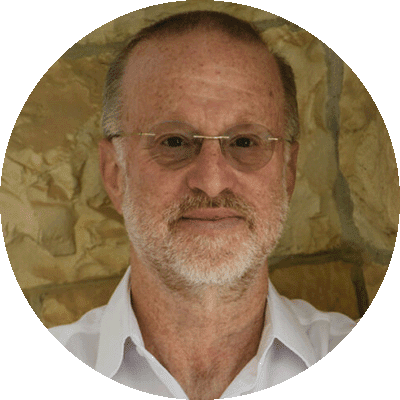A close friend asked me a question: “What view of yours are you rethinking in light of the events of October 7th?”
I may not have the wisdom or clarity to foresee how these events will play out for the Jewish People in the years to come, but I can begin to reconstruct my life in light of all that has transpired.
October 7th scarred my soul. The poet Gregory Orr writes:
Song you sing, poem you are –
finger moving, precise,
As a phonograph needle,
Along the groove of scar.
We have many grooves of scar. I don’t know what the new melody will be. I don’t know what my new song is. The scar is too fresh. But still, I can ask myself—while looking at the scars—what do I need to rethink? What do I need to reconsider? How must I change? What are the new notes of my life? The music of my life will not be the same as October 6th.
For the sake of the Jewish People, I need to learn what to do with my suffering.
For the sake of the Jewish People, with all of my unknowing and lack of clarity, I need to do some personal rethinking and believe that a new song will emerge.
If I were to reflect on how to bring this idea to Jewish educators, I would offer two suggestions.
Firstly, the way to build deep resilience in our students is not through feel-good activities or inspiring pep talks. Though group singing and talks of unbridled optimism may inspire us for a brief time, they will not build lasting resilience. The Jewish people are not a sports team. Flowing adrenaline will not bring about our winning.
When Abraham asked God how he would know that he would inherit the land, God didn’t say to him: “You can do it! I believe in you!” Rather, God told him that he would inherit the land, but first, he would need to be a stranger in a strange land for 400 years.
When God created the world, there first was night, then there was day. The human (and Jewish) condition is composed of light and dark. We cannot repress or ignore the darkness. To get to the light, we must first be willing and able to go through the darkness.
To go through the darkness, we need to remind ourselves that we can do this, we have done this before. One of the most common remarks I have heard during these hard times is: “We’ve been through worse in our 3,500-year history.”
A soulful response is not selective; a soulful response does not choose to see the light and ignore the darkness. A soulful response cannot run from the paralyzing horror and profound brokenness of the present. God also created the darkness.
Yes, we may believe that everything leads to good.
Yes, we may hold that there is a secret mysterious plan that we cannot fathom.
Yes, we may accept Rav Kook’s approach that during a great war, “the Messiah wakes up.”
But we cannot close our eyes to the heartbreak and brokenness we witness every day. There are too many young widows, countless orphans, and bereaved parents. We cannot offer glib answers to our students or to ourselves.
I would suggest that Jewish educators ask the following question of themselves and of their students: How have they overcome dark moments, difficult and painful events, in their lives? I would ask them to reflect on how they endured and moved through them; how they succeeded not to be broken by the dark moments.
Building resilience is recognizing that we can face dark moments and not be defeated by them. Once we understand that our lives will be made up of both light and dark moments, the dark moments may still scare us, but they will not break us.
Secondly, I often say to my children: “Whatever life deals us, we can get through it,” with the emphasis on “we.”
It’s too hard to get through the darkness alone. We can do it, we can only do it—together.
So I would talk with your students about being with other people during their moments of darkness. Practice how to be with them while not offering advice or trying to fix the situation, but to simply be with them with gracious and loving support.
I would ask your students: “Who has helped you in a dark moment? What did they do that was helpful? And what did people do or say that was not helpful?” The greatness of the Jewish people lies in our continually discovering, davka during the darkest times, more courage within ourselves. And, this courage fuels our perseverance and resilience; it empowers us to look the darkness directly in the face and see it clearly, to stand with each other in support and love during the dark times, and to know that through this we will eventually see a new light.

A world-renowned educator, Aryeh Ben David is committed to “plucking the soul strings” of teachers and students alike in order to transform how we learn and grow. He is the founder of Ayeka: Center for Soulful Education, which trains educators on how to teach Jewish subjects with more soulfulness, personal meaning, and impact on life.
Rabbi Ben David taught at the Pardes Institute, where he was a member of the Senior Faculty and Director of Spiritual Education. He has been involved in the training of staff of countless organizations, lectures internationally, and is the author of numerous books including Around the Shabbat Table, a Guide to Meaningful Shabbat Conversations (2000), The Godfile, Ten Approaches To Personalizing Prayer (2007), and Becoming a Soulful Educator: How to Bring Jewish Learning from Our Minds, to Our Hearts, to Our Souls and Into Our Lives (2016).

